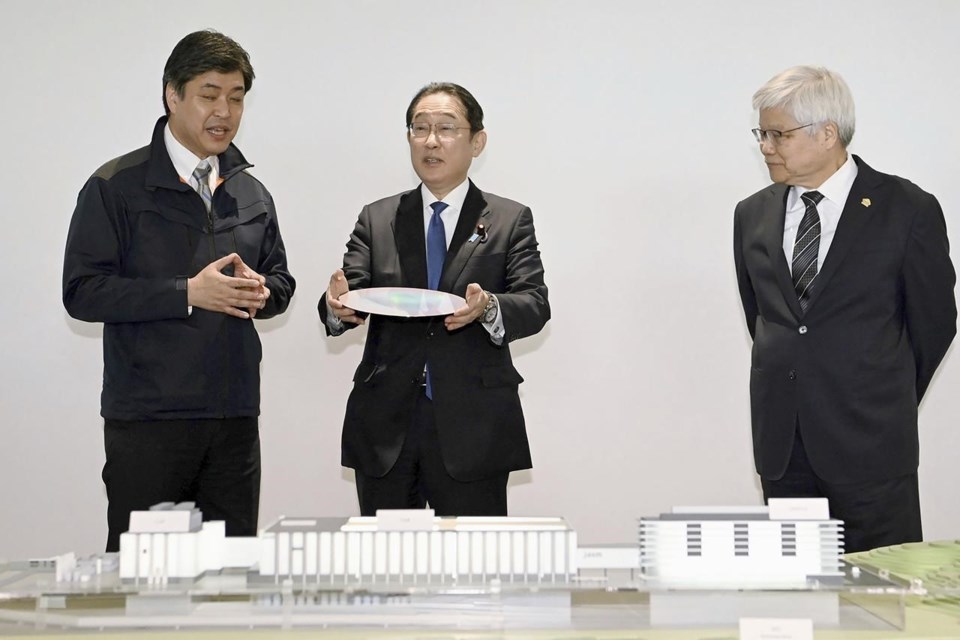TOKYO (AP) — Japanese Prime Minister Fumio Kishida visited a new semiconductor plant for which his government has pledged more than 1 trillion yen ($7 billion) of support to secure a steady supply of chips on Saturday.
“I believe this project will have positive ripple effects throughout Japan. It is key for not only the semiconductor industry but also a wide range of businesses such as electric vehicles and electronics,” he said while touring the facility.
The new plant on the southwestern island of Kyushu, majority owned by the Taiwan Semiconductor Manufacturing Co., is the Taiwanese semiconductor giant's first in Japan.
Kishida also expressed sympathy to Taiwan that left at least 12 people dead.
Japanese companies like Sony, Denso and Toyota are investing in the TSMC subsidiary that , although the Taiwanese giant retained an 86.5% stake in the Japan Advanced Semiconductor Manufacturing Company. The project underlines Japan’s hopes to regain its presence in the computer chips industry.
Four decades ago, Japan dominated in chips, with Toshiba and NEC controlling half the world’s production. That’s declined to under 10%, amid competition from South Korean, U.S. and European manufacturers, as well as TSMC.
Japan has recently earmarked about 5 trillion yen ($33 billion) to revive its chips industry, seeking to become less dependent on imports in the wake of pandemic-era shortages that affected auto production and other industries for months.
Ensuring an ample supply of the most advanced chips is vital with the growing popularity of electric vehicles, as well as artificial intelligence.
Private sector investment totals $20 billion for the plants in the Kumamoto region, southwestern Japan. The second plant is set to be up and running in three years. The two plants are expected to create 3,400 high-tech jobs directly, according to TSMC.
The plant is a bright spot for Kishida, whose popularity has plummeted amid a corruption scandal in his ruling Liberal Democratic Party.
Highlighting Japan’s ties with Taiwan and the U.S., Japan’s most important ally, is one way the prime minister can hope to boost flagging poll numbers. Kishida is scheduled to meet President Joe Biden in Washington next week.
China claims the self-governing island of Taiwan as its own territory and says it must come under Beijing’s control. The long-running divide is a flashpoint in U.S.-China relations.
Semiconductors have more recently become a strategic battleground in the U.S.-China relationship, as Washington has imposed export controls that limit sales of advanced microchips to Chinese companies, citing possible uses of such chips for military applications that include the hypersonic missiles and artificial intelligence.
TSMC is now building a and has announced a plan for its first in Europe. But Japan, geographically closer to Taiwan, is an attractive option.
Tokyo is supporting other semiconductor projects nationwide, involving players including Western Digital and Micron of the U.S., and Japanese companies like Renesas Electronics, Canon and Sumitomo.
___
Yuri Kageyama is on X:
Yuri Kageyama, The Associated Press


